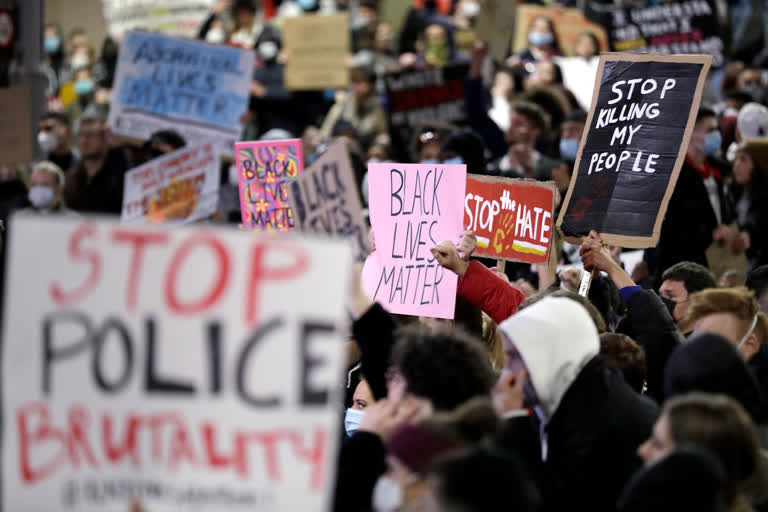Brussels: From Sydney to Paris, world outrage at George Floyd's death in the U.S. was growing Tuesday as the European Union's top diplomat said the bloc was “shocked and appalled” by it and thousands marched in Australia's largest city.
Chanting “Black Lives Matter” and “I can’t breathe," about 3,000 protesters held an impassioned but peaceful march through central Sydney on Tuesday demanding fundamental change in race relations.
In France, protests were planned for the evening in Paris and across the country after calls from the family of a French black man who died shortly after he was arrested by police in 2016. A protest was also planned in The Hague, Netherlands.
Floyd died last week after he was pinned to the pavement by a white police officer in Minneapolis who put his knee on the handcuffed black man’s neck until he stopped breathing. His death set off protests that spread across America.
EU foreign policy chief Josep Borrell's remarks in Brussels were the strongest so far to come out of the 27-nation bloc, saying Floyd's death was a result of an abuse of power.
Borrell told reporters that “like the people of the United States, we are shocked and appalled by the death of George Floyd.” He underlined that Europeans “support the right to peaceful protest, and also we condemn violence and racism of any kind, and for sure, we call for a de-escalation of tensions.”
Protesters around the world have expressed solidarity with Americans demonstrating against Floyd’s death.
In Sydney, a mostly Australian crowd, but also including protesters from the U.S. and elsewhere, marched for around a half-mile under police escort in the authorized, two-hour long demonstration.
Many said they had been inspired by a mixture of sympathy for African Americans amid ongoing violent protests in the U.S., but had turned out to also call for change in Australia’s treatment of its indigenous population, particularly that involving police.
“I can’t breathe” notably were the final words of David Dungay, a 26-year-old Aboriginal man who died in a Sydney prison in 2015 while being restrained by five guards.
“I’m here for my people, and for our fallen brothers and sisters around the world,” said Sydney indigenous woman Amanda Hill, 46, who attended the rally with her daughter and two nieces.
“What’s happening in America shines a light on the situation here. It doesn’t matter if it’s about the treatment of black men and women from here or from another country; enough is enough.”
Also Read:Fully committed to provide justice to George and his family, says Trump
A total of 432 indigenous Australians have died in police detention since a 1991 Royal Commission — Australia’s highest level of official inquiry — into Aboriginal deaths in custody, according to a running analysis by The Guardian newspaper.
Australia has also never signed a treaty with the country’s indigenous population, who suffer higher-than-average rates of infant mortality and poor health, plus shorter life expectancy and lower levels of education and employment than white Australians.
Ray O’Shannassy, one of the rally’s organisers, said he hoped that, touched off by the situation in the U.S., the upswelling of protest seen in Sydney could, this time, lead to long-term change. A larger rally is planned for Sydney on Saturday.
